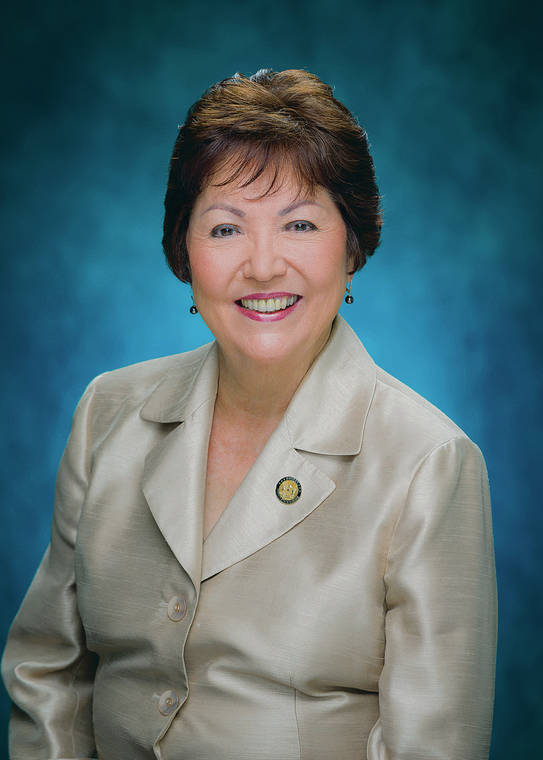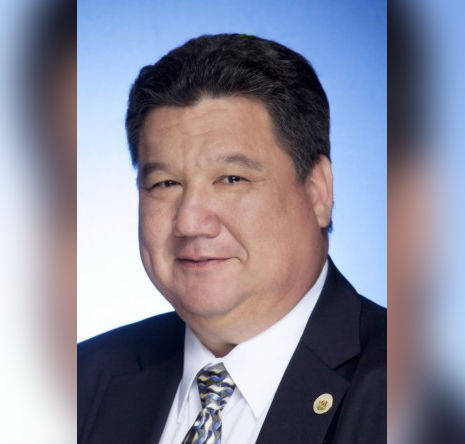State Senate leaders said after the Legislature reconvened Wednesday that two of the biggest challenges during the 2021 session will be to decide what can be funded and whether taxes will need to be increased in order to contend with Gov. David Ige’s proposed budget cuts.
In the wake of double-digit unemployment in Hawaii, Senate President Ron Kouchi of Kauai said the top priority for economic recovery is “the ability for us to find a safe way for children to return to schools so parents can focus … on their jobs.”
Vice President Michelle Kidani of Oahu said that proposed budget cuts to the state Department of Education “is something that we’ll (be) looking at trying to bridge some of those gaps.”
“We know that the federal government is going to be giving to the DOE $183.6 million,” Kidani said. “I think, in speaking to some of the Board of Education members, we’re hoping that most of that will be used at the school level to assist our students and our teachers.”
Amid a projected $1.4 billion deficit, Ige has proposed cutting spending and potentially raising taxes, depending on how much need there is for additional revenue. But the Democratic governor has put off, at least until July, a plan to furlough state workers and cut their pay by about 9%.
Kouchi said he tried to get a read on what initiatives the administration will propose in the 2021 session, but said he and other lawmakers are “getting so little information from the department heads.” He said it’s possible they don’t want to reveal Ige’s plans for revenue enhancement prior to his upcoming State of the State address.
“Are they considering tax increases? If they are, what would they be?” Kouchi mused. “… If there is a reluctance by the Legislature to deal with tax increases, then what are the other avenues? What, specifically, would be some job creation or economic development activities?”
Kouchi noted that states received an extension of unspent coronavirus relief money for another year.
“The Dec. 31 (2020) spend deadline didn’t give, really, us a chance to invest in the industries where you’d need to get the permit and the construction and everything done in too short of a period,” he said. “Now (we) have a little longer-range plans about what to do.”
Kidani said the real challenge is “to work with a budget that is less than what we had hoped for … to the best of our ability for the betterment of our community.”
“My first concern is that we are taking care of our community and getting the vaccine out as quickly as possible, and to let our constituents now when and where those vaccinations are going to take place,” she said.
Senate Majority Leader J. Kalani English of Maui said the pandemic has made the Legislature “much more accessible than we were in the past.”
The public isn’t likely to be allowed inside the Capitol for the remainder of the session, which is scheduled to last through April 29. For the first time, however, lawmakers will accept testimony via Zoom.
Earlier in the day, the public gallery was uncharacteristically empty, security heightened and the festive atmosphere of the past conspicuously absent during the year’s first Senate floor session.
The changes reflected health, public safety and budgetary concerns due to the coronavirus pandemic, as well as security issues expressed in the wake of the violent Jan. 6 riot at the U.S. Capitol in Washington, D.C.
Sen. Laura Clint Acasio of Hilo — who was appointed Monday by Ige to fill the remaining two years of the term of newly elected U.S. Rep. Kai Kahele — banged the gavel, bringing the session to order.
One of Acasio’s ceremonial duties at the podium was to take nominations for president of the legislative body. Kouchi, the incumbent president, was the only nominee.
Sen. Dru Kanuha of Kona was confirmed as majority caucus leader, and Sen. Lorraine Inouye of Hilo was named majority whip.
Sen. Kurt Fevella of Oahu, the only Republican in the chamber, was named minority leader and minority floor leader.
Email John Burnett at jburnett@hawaiitribune-herald.com.









